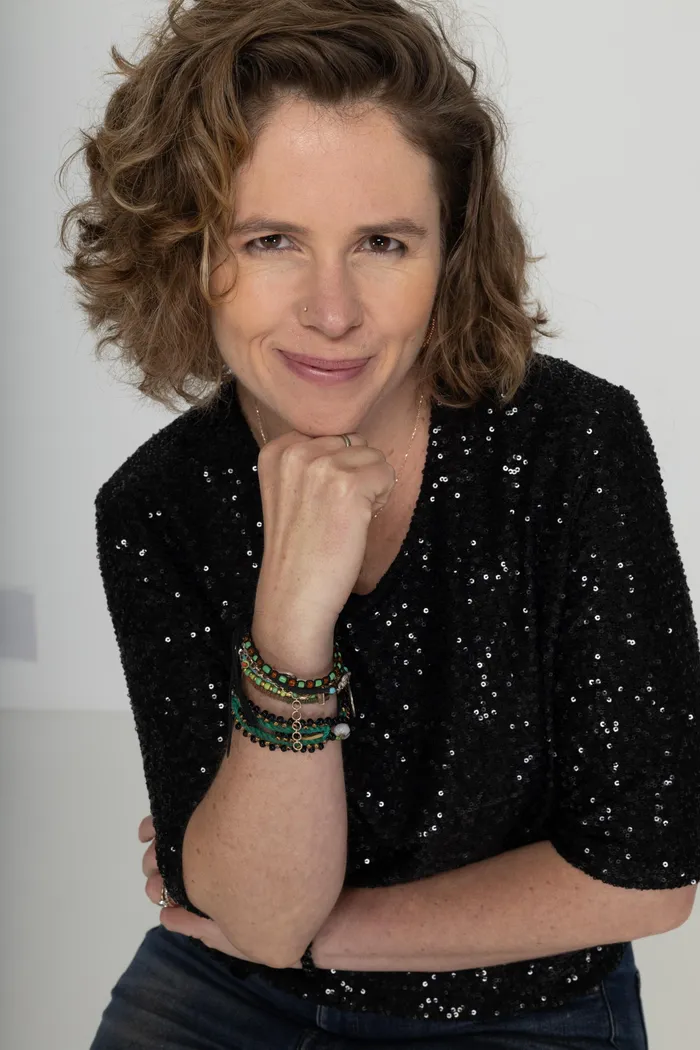The reality check of scaling your business that no-one tells you

After scaling and selling her business she launched global research into the post-exit founder journey, interviewing 90+ entrepreneurs to date.
Image: Supplied
Every entrepreneur has a dream for their business. There are those who’ve built a business around their personal passions and lifestyles and have no intention of selling while others aim to grow and scale their business so they can exit and retire or start a new venture.
Kim Whitaker is an exited founder, award-winning entrepreneur and Business Growth Coach with Bloom Growth™ and a member of the Entrepreneurs’ Organisation Cape Town (EO).
After scaling and selling her business she launched global research into the post-exit founder journey, interviewing 90+ entrepreneurs to date. Kim works with Growing SME's worldwide to align leadership teams, build intentional exits and design cultures where both people and businesses thrive. She holds an Executive MBA and is a proud EO member since 2018.
“After exiting my business in 2021, I expected to feel on top of the world. The daily grind of building for years had taken its toll: I was burnt out and ready for a lucky break. The euphoria of the first few weeks wore off fast and was replaced with a sense of loss and rudderlessness I hadn’t anticipated. But who was I to whinge about my champagne problems? After all, I now had time and money, the two things I’d craved for years.” Says Kim.
But negotiating the exit was tough and one word in the contract cost Kim a significant portion of the deal. Afterwards she wished she had had an M&A team and a mentor in her corner who had gone through an exit themselves.
As it turns out, money solves money problems. Many of the emotions Kim felt were not unique to her. “The paradox of success is that reaching the summit often erases the trail that gave life its shape - leaving many founders to rebuild structure, meaning, and identity from scratch.” And according to a 2020 Yale paper (What’s Next: The Entrepreneur’s Epilogue and the Paradox of Success) the majority of entrepreneurs face unexpected emotional struggles after exit - from loss of identity to isolation and even depression. These challenges are not the exception; they’re the norm. Which is why founders must prepare not only financially, but emotionally, for what comes after the deal closes.
Kim shares some of the reality check that no-one tells you
- Arrival fallacy: We expect happiness “when I get there,” but the high is fleeting and followed by a void.
- Triad of loss: Success dissolves the old structure (rhythm and routine), meaning (a mission and metrics that mattered), and identity (“I’m the CEO/founder”).
- Bigger the goal, bigger the hole: The more all-in the founder was, the deeper the post-exit dip.
- New job description: You shift from wealth creator to wealth manager, and from operator to undefined self. That’s emotionally jarring.
The myth of the perfect exit
Many founders assume that selling will bring only freedom, wealth, and relief. In reality, many experience emotional whiplash. Exits can trigger paradoxical feelings: pride and regret, freedom and anxiety, gratitude and anger - often at the same time.
Loss of identity & purpose
For years, our sense of self is tied to the business: the brand, the team, the daily decisions. There’s a buzz and an energy in working with a team; your identity, status and place in society are linked to being a “business owner” or entrepreneur.
After Kim’s own exit, she hit a mini identity crisis, she wondered who she was without her business. “Even simple things became weirdly awkward: filling in “Profession” on an arrival form, or answering the dinner-party classic, “So, what do you do?” The momentum stops when the deal is done, the phone stops ringing, the inbox goes quiet (for some, it’s the first time in decades without a business email). Even the bank manager doesn’t return the calls.”
It was these surprising emotions that pushed Kim to start a global research project interviewing 90 post-exit founders to date about their exit journey finding that the patterns are remarkably consistent across geographies, deal sizes, and personalities.
Why experienced mentors matter
Having someone who’s walked the path doesn’t just normalise the experience, it can transform it. Where a founder had a strategic mentor – Kim has coined this person an “Exiteur” (someone who has exited themselves), the outcomes both business and emotional were always materially better.
“Exiteurs” can:
- Help identify the true levers of value years before exit (e.g., revenue drivers, net profit, strategic position, team design) so you grow in the direction a buyer, successor or IPO will value.
- Introduce a reputable M&A team at the right time.
- Share deal-making and negotiation tactics for a process that can be gruelling and long.
- Offer an experience share for navigating the void after exit—rebuilding structure, meaning, and identity intentionally.
Finding support through EO
As an active member of the Entrepreneurs’ Organisation since 2018, Kim has received much support from her forum members who stood by her throughout her journey and especially during exit negotiations. EO Accelerator opened her eyes to the power of a business operating system to scale. Post-exit, she started a community within EO (MyEO Post Exit Founders) to spark more honest conversations about this often-overlooked stage, and has hosted meet ups and dinners around the world with exited founders.
In the end: every entrepreneur will exit on a stretcher or intentionally. A thoughtful exit needs both a financial strategy and an emotional strategy. Prepare for the deal. Then prepare for the day after.

Kim Whitaker, an exited founder, award-winning entrepreneur, Business Growth Coach with Bloom Growth™ and a member of the Entrepreneurs’ Organisation Cape Town (EO).
Image: Supplied.
BUSINESS REPORT